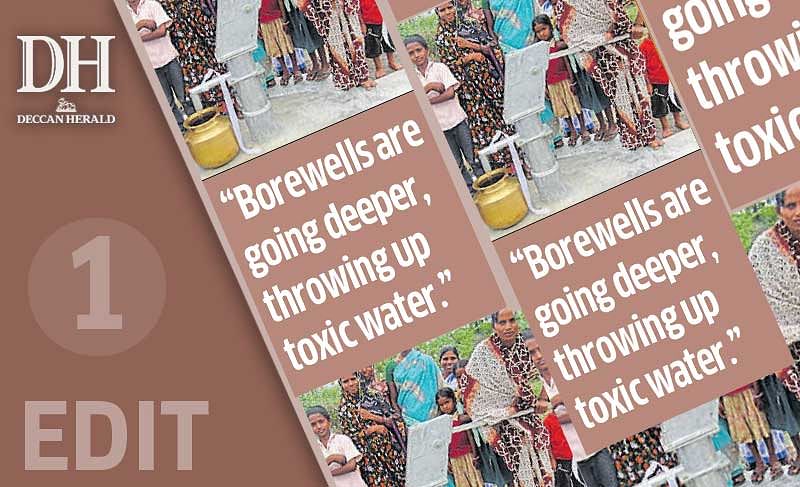The large and growing number of deep borewells in India points to a worsening groundwater crisis in the country. According to data from the fifth minor irrigation census conducted by the Union Ministry of Water Resources, there are 2.6 million deep borewells in 661 districts in India and their numbers have grown rapidly from 0.1 million in 1987 to more than 2.6 million by 2013-14. Most of these are located in Rajasthan, Andhra Pradesh, Tamil Nadu, Karnataka, Punjab and Telangana. Deep borewells are more than 70 meters deep, and Karnataka stands fourth in the country with regard to the number of such wells. It has 118,763 deep borewells, of which 40,186 are over 150 meters deep.With surface water and shallow and medium groundwater levels getting depleted, people are digging deeper for water. The large number of deep borewells in Karnataka is not surprising. In March, Karnataka's Minor Irrigation Minister, T B Jayachandra drew attention to the groundwater crisis in the state. Of the 177 taluks in Karnataka, groundwater levels in 143 have depleted over the past decade, with depletion most severe in Kolar district, where groundwater levels fell by almost 55% in this period.
Digging deep for water is worrying because it signals depletion of groundwater levels and growing scarcity of water for human and animal consumption, irrigation, etc. Besides, groundwater at low levels is highly toxic. Consuming such water impacts human health directly and indirectly. The latter happens when toxic water being used for irrigation is absorbed by plants and thus enters the food chain.
India's groundwater is among the most toxic in the world. A study found that the concentration of deadly substances like lead, cadmium, vanadium and arsenic in groundwater in Telangana, for instance, was thousands of times higher than the maximum levels prescribed by the World Health Organisation and the Bureau of Indian Standards for groundwater. Therefore, India must act robustly to reduce dependence on groundwater. This will require steps to restore surface water sources. Rainwater harvesting should be encouraged. Karnataka imposed a ban on sinking new borewells some years ago, only to lift the ban subsequently to tide over the water shortage in the state. Such steps will encourage people to sink borewells aggressively before the ban is restored. Many borewells in the country are illegal. Borewell companies need to be monitored and action must be taken against water mafias. Importantly, people should be made aware that deep borewells are hardly a solution to water scarcity. Indeed, given the toxicity of water in such wells, these are a source of new and deadlier problems.
